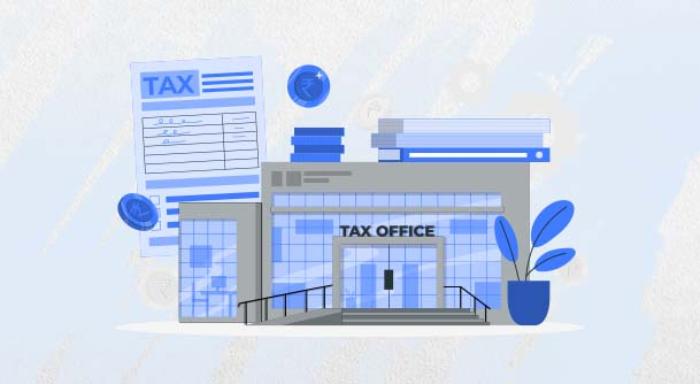6 Important Income Tax Rules
Blog Title
2043 |
Paying income tax is the primary responsibility of every responsible citizen. However, there are various means by which income tax liability of an individual can be reduced. This is referred to as tax planning. It is not the same as tax evasion.
Below are certain income tax provisions that you can take advantage of to reduce your yearly income tax liability:
Deduction Under Sections 80C, 80CCC, 80CCD, 80D of the Income Tax Act, 1961
Amount invested in life insurance policies, ULIPs, endowment plans, term plans, public provident fund, NSCs, principal repayment of home loans availed, etc. can be claimed as a deduction under section 80C. Deduction under section 80CCC can be claimed for investments in pension schemes.
Such deductions can be claimed up to a limit of ₹ 1,50,000.
Medical insurance availed for the benefit of self, spouse, parents, or dependent children can be claimed as a deduction under section 80D. Amount of deduction is limited to ₹ 25,000. In case if medical insurance is for the benefit of a senior citizen the above-mentioned limit is increased to ₹ 50,000. Such medical premium must be paid in any mode other than cash. You can also claim tax deductions of up to ₹ 5,000 in case of preventive health check-ups.
Deduction Under Section 10(10D)
The maturity and death benefit of a life insurance policy can be tax exempt under the provisions of Section 10(10D). Death benefit is always tax exempt, except in the case of keyman insurance.
Maturity benefit may be applicable for tax exemptions, provided that your policy meets the section’s various terms and conditions. To know more about the various exceptions and terms of Section 10(10D), click here.
Capital Gains on Certain Securities
Capital gains arising on transfer of equity shares, units of an equity-oriented fund or units of a business trust are exempt from tax under section 10(38). Provided, if such securities are sold within a period of less than one year from its date of acquisition then capital gain will be taxable at the rate of 15%
Deduction Related to Donations
Deduction under section 80G can be availed for amount donated subject to the limits laid down. If donation is made in cash, then the payment needs to be below ₹ 2,000 for Section 80G deductions. Cash donations above ₹ 2,000 cannot be claimed under Section 80G. Ensure that large donations are always made via alternative payment methods.
Deduction can also be claimed for donation to a political party or an electoral trust, provided it is made in any mode other than cash. There are four categories under Section 80G:
- Donations that get 100% deduction (no qualifying limit)
- Donations that get 50% deduction (no qualifying limit)
- Donations that get 100% deduction (conditional to qualify limit)
- Donations that get 50% deduction (conditional to qualify limit)
Tax Planning for Capital Gains
Capital gains arise on the transfer of any capital asset. Long term capital gains are subject to tax at 20% while short term capital gains are included in the total income of the taxpayer. Exemption under 54 series can be availed to reduce the tax liability on capital gains. Various exemptions are available under section 54 depending upon the nature of capital gains and asset transferred. Exemption can be claimed if the amount of capital gain is invested as per conditions specified.
Deduction Under Rajiv Gandhi Equity Savings Scheme
This deduction is available to a first-time retail investor. It is subject to various restrictions. Total income of the taxpayer must not exceed Rs. 12 Lacs in the previous year in which deduction is availed. Amount of deduction is limited to 50% of amount invested or Rs. 50,000, whichever is lower. Further, the lock in period of the investment made is 3 years. This scheme was introduced in order to boost investments in capital markets.
Business Specific Exemptions
Deduction under section 80-IA to 80RRB can be availed as per the conditions laid down. Tax holidays, deductions as a percentage of profits or losses derived from business or any amount specified as per the section can be claimed. Additionally, deduction under section 10AA is also available to those units which are set up in any Special Economic Zone.
Thus, given above are the six pillars of tax planning which must be considered while making any crucial decisions.
Chirag Iyer - BFSI Enthusiast
Chirag is a writer and an avid reader who loves to drink coffee! His other interests include boxing, karate, and singing.












